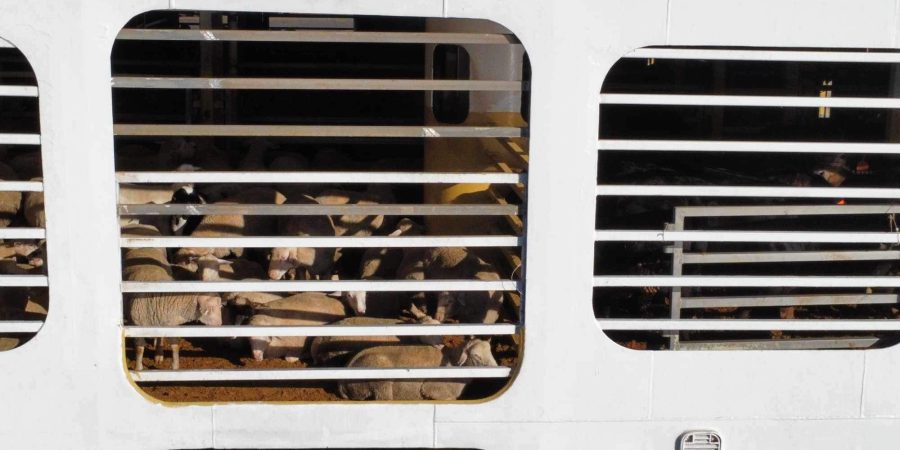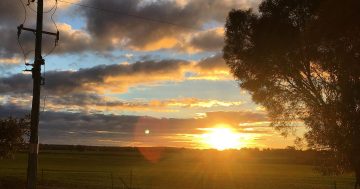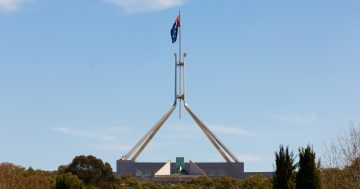
Images similar to these, of sheep stuck for weeks on ships like the MV Bahijah, have helped turn the tide against live animal exports. Photo: Stop Live Exports.
Australia’s live sheep trade is coming to an end, with shipments set to stop in less than four years’ time.
The Senate passed the Federal Government’s legislation this week that will ban the live sheep trade by sea in May 2028.
The controversial legislation has been fought at every step of its journey through the Federal Parliament, with opponents still vowing to contest Labor-held seats in order to get the laws overturned.
But it was a Labor election promise that animal welfare activists have welcomed.
The decision has the greatest impact on Western Australia, which is the only state still to ship live sheep.
The government is providing a $107 million transition package to WA farmers, although WA Premier Roger Cook says that’s not enough, and Canberra will have to cough up about $123 million.
“It will have a detrimental effect [on] WA farmers, so that’s why we want them to do that little bit more just to make sure we make this transition as smooth as possible,” he told ABC Radio.
“What we’ve been doing is working with the Federal Government to say, ‘you have to do more, we need more assistance for WA farmers to assist them in terms of this transition’.
“Our modelling shows it’ll have about a $123 million impact on the industry and the loss of about 400 jobs.”
Federal Agriculture Minister Murray Watt, however, told parliament the $107 million transition package was a good level of support.
“This policy is about keeping jobs in Western Australia rather than sending those jobs offshore,” Mr Watt said.
“In doing so, we will be putting forward a strong future for the Western Australian sheep industry.”
In a subsequent media interview, Senator Watt said Labor had taken the live sheep phase-out policy to two consecutive federal elections, winning the second time.
“I do think it’s important that we follow through on those commitments that we’ve made to the Australian people,” he said.
“But we’ve also acknowledged that this is a pretty significant shift for Western Australian sheep farmers and the sheep industry.”
Nationals leader David Littleproud accused Labor of destroying 3000 jobs while “bowing down” to animal activists.
“Today is a devastating day for the farming industry in Western Australia and around the entire country,” Mr Littleproud said.
“Farmers now know Labor is willing to sell them out and shut down a successful, world-class trade based on ideology.”
He had tried to delay the final vote on the legislation in order to allow Senate committee scrutiny.
He failed in that bid, but in the House of Representatives Question Time on Tuesday (2 July), the Nationals Leader asked Prime Minister Anthony Albanese to name one country that has higher standards than Australia for live exports.
The PM said the transition package was a healthy figure compared to the value of the live export industry, which he said was around $80 million.
He said the model for the live sheep export industry was built on animal suffering.
“The fact is that the live sheep industry has been in decline compared with the sheep meat industry, which is valued at about $4 billion,” Mr Albanese said.
“If you had a dog in a car all day in hot conditions, the owners will be charged with animal cruelty. Yet it is okay for 1000 sheep to go into international waters, suffer heat stress, suffer lack of ventilation, suffer lack of water and die in cruel, inhumane conditions.
“To me, that is not acceptable.”
The Keep the Sheep delegation met with the Prime Minister earlier in the week but said they left feeling disheartened at the government’s commitment to the ban.
Spokesman Ben Sutherland said regional communities would feel the brunt of the legislation’s impact.
“It affects my IGA, it affects my pub, it affects my sporting groups, it affects everything that goes on in my rural community,” he said.
“They need to come and see that, to see what damage they’re doing to us.”
The group now plans to campaign against Labor MPs in marginal federal seats – not just in WA.
Original Article published by Chris Johnson on PS News.





















